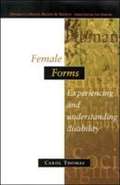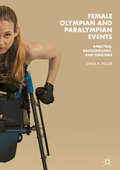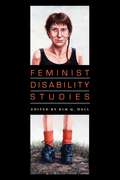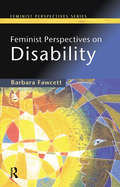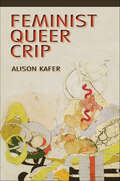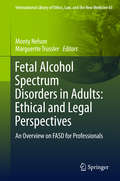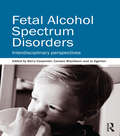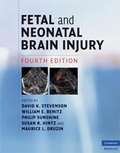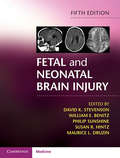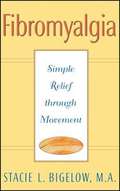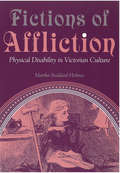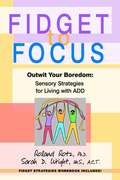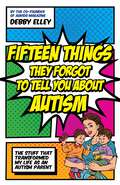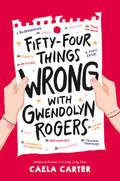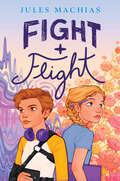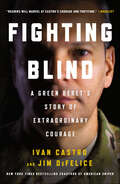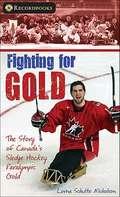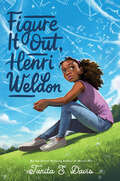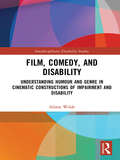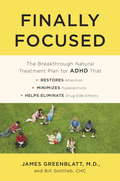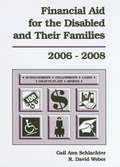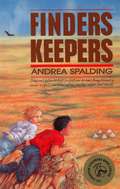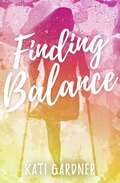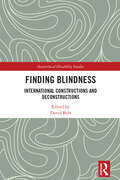- Table View
- List View
Female Forms: Experiencing and Understanding Disability
by Carol Thomas* What is the relevance of feminist ideas for understanding women's experiences of disability? * How can the social model of disability be developed theoretically? * What are the key differences between Disability Studies and medical sociology? In answer to these questions, this book explores and develops ideas about disability, engaging with important debates in disability studies about what disability is and how to theorize it. It also examines the interface between disability studies, women's studies and medical sociology, and offers an accessible review of contemporary debates and theoretical approaches. The title Female Forms reflects two things about the book: first, its use of disabled women's experiences, as told by themselves, to bring a number of themes to life, and second, the author's belief in the importance of feminist ideas and debates for disability studies. The social model of disability is the book's bedrock, but the author both challenges and contributes to social modelist thought. She advances a materialist feminist perspective on disability, producing a book which is of multi-disciplinary relevance. Female Forms will be useful to the growing number of students on Disability Studies courses, as well as those interested in women's studies, medical sociology and social policy. It will also appeal to those studying or working in the health and social care professions such as nursing, social work, occupational therapy and physiotherapy.
Female Olympian and Paralympian Events: Analyses, Backgrounds, and Timelines
by Linda K. FullerFemale Olympian and Paralympian Events is a groundbreaking book that examines women’s sports in the Olympic and Paralympic Games, which have long been underappreciated and under-analyzed. The book begins with a brief background on women’s participation in the Olympic Games and their role relative to the International Olympic Committee, then introduces the underlying Gendered Critical Discourse Analysis theory used throughout the book’s analysis before delving into a literature review of female Olympians and Paralympians’ events. It includes a listing of noteworthy “firsts” in the field, followed by individual discussions of twenty-eight Summer and seven Winter events, analyzed according to their historical, rhetorical, and popular cultural representations. Women’s unique role(s) in the various events are discussed, particular athletes and Paralympic events are highlighted, and original tables are also included. At the end of each section, affiliated organizations and resources are included in this invaluable referential volume.
Feminist Disability Studies
by Kim HallDisability, like questions of race, gender, and class, is one of the most provocative topics among theorists and philosophers today. This volume, situated at the intersection of feminist theory and disability studies, addresses questions about the nature of embodiment, the meaning of disability, the impact of public policy on those who have been labeled disabled, and how we define the norms of mental and physical ability. The essays here bridge the gap between theory and activism by illuminating structures of power and showing how historical and cultural perceptions of the human body have been informed by and contributed to the oppression of women and disabled people.
Feminist Perspectives on Disability (Feminist Perspectives)
by Barbara FawcettFeminist Perspectives on Disability provides a unique introduction to the key debates in relation to both feminism and disability. The author considers contemporary similarities, differences and contentious areas and how concepts drawn from postmodern feminism can be usefully applied to the disability arena. The book explores many important aspects of the field, including: biological debates; issues of power, knowledge, equality, difference, subjectivity and the body; interface of public and private/care and community; medical and social barriers; politics, citizenship and identity.Feminist Perspectives on Disability will be compulsory reading for students of all levels in Women's Studies, Gender Relations, Social Policy, Social Work/Social Care and social Science.
Feminist, Queer, Crip
by Alison KaferA critical analysis of how social and academic discourses treat disability and how they affect disabled lives.“This book breathes the poetics of disability life, a life that is consistently under threat, in a way that is complex, clear, highly accessible, and grounded in the politics of everyday life. For this reason, it may not be just that this book is highly teachable (which it is); this is a book that must be included in any disability studies, queer theory, and feminist theory curricula.” —Canadian Journal of Disability StudiesIn Feminist, Queer, Crip Alison Kafer imagines a different future for disability and disabled bodies. Challenging the ways in which ideas about the future and time have been deployed in the service of compulsory able-bodiedness and able-mindedness, Kafer rejects the idea of disability as a pre-determined limit. She juxtaposes theories, movements, and identities such as environmental justice, reproductive justice, cyborg theory, transgender politics, and disability that are typically discussed in isolation and envisions new possibilities for crip futures and feminist/queer/crip alliances. This bold book goes against the grain of normalization and promotes a political framework for a more just world.“Feminist, Queer, Crip makes significant contributions to our understanding of how disability works in the world, contributions that no other academic book in the recently emergent field of interdisciplinary disability studies has done so thoroughly.”―Journal of Literary and Cultural Disability Studies“Ambitious, doggedly interdisciplinary, and accessibly written. It retains political sharpness while remaining determinedly optimistic about queer/crip futures.”―QED“Kafer interrogates the ableist assumptions that pervade social and academic discourses and offers a critique of how these assumptions are put into practice in ways that directly affect the lives of people with disabilities. This is an original and comprehensive work that brings together disability studies, feminist theory, and queer theory.”―Licia Carlson, Providence College
Fetal Alcohol Spectrum Disorders in Adults: Ethical and Legal Perspectives
by Monty Nelson Marguerite TrusslerThis book discusses and provides insight on the legal and ethical dilemmas of managing those with Fetal Alcohol Spectrum Disorder (FASD). This book provides a clear perspective for those clinicians and legal professionals who are working with those with this disorder, and correspondingly increases their understanding when arranging effective supports for this population. Historically, the primary focus on FASD has been on children. However, this is a lifelong disorder and the implications of this disorder become even more prominent and complex in adulthood. Those with this condition can struggle with impulsiveness, and a host of cognitive difficulties. This correspondingly impacts their independence and employability, and produces an elevated risk for homelessness and other residential issues, involvement in substance use, being exploited, development of behavioural issues, and subsequent legal difficulties. Their cognitive difficulties result in challenges for legal systems around the world to understand their issues, and to design appropriate remedial strategies, recommendations for treatments and supports, and even for understanding the failure of many of these individuals to be able to change their behaviours effectively. This produces various legal and ethical dilemmas, which are discussed in detail in this volume by 28 authors from Europe, New Zealand and North America. These include discussions regarding the rights of the unborn child, the alcohol industry's duty to warn, whether small amounts of alcohol during pregnancy can be condoned, and even the current use of involuntary hospitalization for addicted mothers. Other chapters discuss the need for training on FASD for front line officers, use of lies during interrogation of those with FASD, medical and legal interventions for offenders with FASD, access to diagnostic services and follow-up supports, and whether FASD can be considered a mitigating factor for sentencing. Furthermore, caregivers also provide their stories regarding the daily dilemmas that are faced in raising those with FASD.
Fetal Alcohol Spectrum Disorders: Interdisciplinary perspectives
by Barry Carpenter Jo Egerton Carolyn BlackburnFetal alcohol spectrum disorders (FASDs) have emerged as a major phenomenon within the education, health, criminal justice and social care systems of many countries, with current prevalence figures suggesting that one in a hundred children and young people have FASDs. In this publication, academics, professionals and families from around the world have shared expertise and insights on FASDs. Their combined interdisciplinary perspective makes an invaluable contribution to how we understand and address the complex social, educational and health needs associated with this growing group of children and young people. Articulating fundamental knowledge, cutting edge initiatives and emerging trends in FASDs, this book provides an evidence base that will enable services to identify and respond to the need for action on FASDs. It recognises that families – natural, foster or adoptive – are at the heart of this process, and that their rich knowledge base, grounded in their lived experience, is crucial. Any education, social care, criminal justice or health professional working with children and young people with FASDs and their families will find this book a seminal and authoritative resource.
Fetal and Neonatal Brain Injury
by David K. Stevenson William E. Benitz Philip Sunshine Susan R. Hintz Maurice L. DruzinImprovements in the detection of fetal and neonatal brain injuries, advances in our understanding of the pathophysiology, cellular and molecular bases of encephalopathy, and new treatment options have all combined to produce significant changes in the management of neonatal brain disorders in the past few years. This new edition of Fetal and Neonatal Brain Injury brings the reader fully up to date with all advances in clinical management and outcome assessment. New material includes pregnancy-induced hypertension, HELLP syndrome and chronic hypertension, complications of multiple gestation, neurogenic disorders of the brain, neonatal stroke and much more. An expanded, highly illustrated chapter on structural and functional imaging of the fetal and neonatal brain is also included. An outstanding international team of highly experienced neonatologists and maternal-fetal medicine clinicians have produced a practical, authoritative clinical text that gives clear management advice to all clinicians involved in the treatment of these patients.
Fetal and Neonatal Brain Injury: Mechanisms, Management And The Risks Of Practice
by David K. Stevenson William E. Benitz Philip Sunshine Susan R. Hintz Maurice L. DruzinImprovements in the detection of fetal and neonatal brain injuries, advances in our understanding of the pathophysiology, cellular and molecular bases of encephalopathy, and new treatment options have all combined to produce significant changes in the management of neonatal brain disorders in the past few years. This new edition of Fetal and Neonatal Brain Injury brings the reader fully up to date with all advances in clinical management and outcome assessment. New material includes pregnancy-induced hypertension, HELLP syndrome and chronic hypertension, complications of multiple gestation, neurogenic disorders of the brain, neonatal stroke and much more. An expanded, highly illustrated chapter on structural and functional imaging of the fetal and neonatal brain is also included. An outstanding international team of highly experienced neonatologists and maternal-fetal medicine clinicians have produced a practical, authoritative clinical text that gives clear management advice to all clinicians involved in the treatment of these patients.
Fibromyalgia Freedom!: Your Essential Cookbook and Meal Plan to Relieve Pain, Clear Brain Fog, & Fight Fatigue
by Kathleen StandaferFight fibro the natural way—with food.There's a vital connection between what you eat and how you feel. Fibromyalgia Freedom! helps you manage your fibromyalgia naturally by taking control of your nutrition. This gourmet meal plan targets pain, lethargy, indigestion, and cognitive "brain fog," so you can find relief—and still eat well.The 4-stage plan starts you on a targeted diet, removing problematic foods to give your body a chance to heal. Over 110 recipes give you lots of engaging options to further reduce fibromyalgia symptoms. The recipes are brain- or immunity-boosting, and many are free of gluten, dairy, or allergens like nuts.In Fibromyalgia Freedom!, you'll find:4-week meal plan—Address fibromyalgia symptoms in four stages: Pain Management, Gaining Energy, Fighting Brain Fog, and Promoting Healthy Digestion.110+ nourishing recipes—Enjoy Thai Coconut Milk Soup, Crispy Baked Parsnip Fries, Italian-Style Meatballs, Creamy Chocolate Mousse, and more.Symptom tracking—Regain control of your health using a guided tracking strategy, made easy with charts for your symptoms, foods, and weekly progress.This holistic approach to fibromyalgia treatment will put you on the path to a more stress-free and symptom-free life.
Fibromyalgia: Simple Relief Through Movement
by Stacie L. BigelowTHIS CARING AND KNOWLEDGEABLE GUIDE CAN HELP YOU FEEL BETTER-STARTING NOW. Fibromyalgia causes muscle stiffness and pain, debilitating fatigue, and numerous other symptoms. Most frustrating of all, people with fibromyalgia syndrome don't look sick; standard tests for injury or chemical imbalances often show nothing wrong. But if you suffer from fibromyalgia, you know that your disease is real, and so is your pain. It's natural to feel discouraged--but don't give up! In fibromyalgia: Simple Relief through Movement, Stacie L. Bigelow--a motivational health counselor and FMS sufferer herself--gives hope to everyone with fibromyalgia with a simple program designed to help you benefit from the one thing that is known to help: movement. "The most important key to managing muscles affected by fibromyalgia," writes Bigelow, "is to keep them moving." Drawing on new medical understanding of fibromyalgia as well as her patients' and her own experiences, she explains what the disease is and how to implement an effective plan. She shows you: * Why traditional exercise programs are not for you * Which activities will reduce your pain--and which might increase it * How to balance your daily needs for healing rest and movement * How (and whether) to use muscle conditioning to decrease pain * How to stretch properly to reduce pain * How to communicate your needs to family members, coworkers, and health care providers. Presenting clear and specific advice on how to use movement safely and effectively to ease the pain of fibromyalgia, this caring, knowledgeable guide will give you an optimistic new mind-set about your pain, your body, and your future. STACIE L BIGELOW, M.A., is a health educator, researcher, and counselor who has had fibromyalgia syndrome for nearly ten years. She is the author of many health improvement courses used in a variety of settings and is an adjunct instructor of psychology at Adler Graduate School in Minnesota. With a degree in health counseling, she helps her patients improve their health and manage chronic illnesses through personalized exercise and stress management plans.
Fictions of Affliction
by Martha Stoddard Holmes"Highly recommended . . . Holmes moves seamlessly from novelists like Charles Dickens to sociologists like Henry Mayhew to autobiographers like John Kitto. " ---Choice "An absolutely stunning book that will make a significant contribution to both Victorian literary studies and disability studies. " ---Rosemarie Garland-Thomson, Emory University "Establishes that Victorian melodrama informs many of our contemporary notions of disability . . . We have inherited from the Victorians not pandemic disability, but rather the complex of sympathy and fear. " ---Victorian Studies Tiny Tim, Clym Yeobright, Long John Silver---what underlies nineteenth-century British literature's fixation with disability? Melodramatic representations of disability pervaded not only novels, but also doctors' treatises on blindness, educators' arguments for "special" education, and even the writing of disabled people themselves. Drawing on extensive primary research, Martha Stoddard Holmes introduces readers to popular literary and dramatic works that explored culturally risky questions like "can disabled men work?" and "should disabled women have babies?" and makes connections between literary plots and medical, social, and educational debates of the day. Martha Stoddard Holmes is Associate Professor of Literature and Writing Studies at California State University, San Marcos.
Fidget to Focus: Sensory Strategies for Living with ADD
by Roland Rotz Sarah D. Wright"Full of tips and strategies collected over years of shared experiences, Fidget to Focus is a gold mine of information and sometimes surprising, sometimes heart-warming stories about how to stay focused and on track, even when tasks are dull, tedious, and boring." -- Thom Hartmann, author of Attention Deficit Disorder: A Different Perception. Until now, the only way you could learn about the Fidget to Focus approach to successfully living with and managing Attention Deficit Disorder (ADD) was to attend a national conference. The groundbreaking ideas in this book, based on the personal experiences of hundreds of people and recent breakthroughs in neuroscience, will change the way you live with this disorder. Fidget to Focus is a guide to keeping your brain engaged and focused with tools and techniques available to you at any time (workbook included!).
Fifteen Things They Forgot to Tell You About Autism: The Stuff That Transformed My Life as an Autism Parent
by Debby ElleyWhat if the things people need to know about autism is not the information they're getting? Combining myth-busting advice with personal experience, this book from the mother of autistic twins shares simple strategies to build children's confidence, communication, and independence. From sharing the joy of yodelling around shops at the weekend, to finding creative ways to communicate with both her verbal and her non-verbal sons, Debby Elley gives practical and fun tips for everyday living and shows that being autistic is just another way of being. Both witty and candid, the book discusses labels, meltdowns, acceptance, happiness and much more.
Fifty-Four Things Wrong with Gwendolyn Rogers
by Caela CarterFrom the critically acclaimed author of the ALA Notable and Charlotte Huck Honor Book Forever, or a Long, Long Time comes a moving own-voices story that shines a light on how one girl’s learning differences are neither right nor wrong…just perfectly individual. For fans of Alyson Gerber, Cammie McGovern, and Kathryn Erskine. <p><p> No one can figure out what Gwendolyn Rogers’s problem is—not her mom, or her teachers, or any of the many therapists she’s seen. But Gwendolyn knows she doesn’t have just one thing wrong with her: she has fifty-four. <p><p> At least, according to a confidential school report (that she read because she is #16. Sneaky, not to mention #13. Impulsive). So Gwendolyn needs a plan, because if she doesn’t get these fifty-four things under control, she’s not going to be able to go to horse camp this summer with her half-brother, Tyler. <p><p> But Tyler can’t help her because there’s only one thing “wrong” with him: ADHD. And her best friend Hettie can’t help her because there’s nothing wrong with Hettie. She’s perfect. So Gwendolyn is hopeless until she remembers the one thing that helped her mother when her own life was out of control. Or actually, the twelve things. <p><p> Can these Twelve Steps that cured her mother somehow cure Gwendolyn too?
Fight + Flight
by Jules MachiasJules Machias, author of Indie Next List Pick Both Can Be True, delivers another inspiring story about how an unexpected friendship transforms the lives of two middle schoolers.Avery Hart lives for the thrill and speed of her dirt bike and the pounding thump of her drum kit. But after she’s diagnosed with hypermobile Ehlers-Danlos syndrome, a disease that affects her joints, Avery splits her time between endless physical therapy and worrying that her fun and independence are over for good.Sarah Bell is familiar with worry, too. For months, she’s been having intense panic attacks. No matter how much she pours her anxiety into making art, she can’t seem to get a grip on it, and she’s starting to wonder if she’ll be this way forever.Just as both girls are reaching peak fear about what their futures hold, their present takes a terrifying turn when their school is seemingly attacked by gunmen. Though they later learn it was an active shooter drill, the traumatic experience bonds the girls together in a friendship that will change the way they view their perceived weaknesses—and help them find strength, and more, in each other.
Fighting Blind: A Green Beret's Story of Extraordinary Courage
by Jim DeFelice Ivan CastroFighting was a practiced routine for Lieutenant Ivan Castro. But when a mortar round struck the rooftop of his sniper’s post in Iraq, he found himself in a battle more difficult than even he could have imagined. The direct hit killed two other soldiers and nearly claimed Castro’s life as well. Mangled by shrapnel and badly burned, Castro was medevac’d to Germany more dead than alive. His lungs were collapsed. He couldn’t hear. One eye had been blown out, the nerve to the other severed.In the weeks and months that followed, Castro would find that physical darkness was nothing compared to the emotional darkness of loss and despair. Desperate for a reason to live, he eventually fought his way back to health through exercise and a single-minded goal: running a marathon. Once he set his course, there was no stopping him. Stubborn to a point that at times bordered on insanity, he managed not only to recover but to return to active duty. Since 2007, he has run over two dozen marathons, including the Boston Marathon in 2013, where he was one of the runners diverted when the bombs exploded.Today, Castro helps prepare soldiers for combat, working exactly as if he were “sighted.” Fighting Blind, this frankly told account of his struggle through adversity, the highs and lows and the always bumpy road in between, is a story of hope and perseverance against the odds: an Unbroken for the present generation.
Fighting for Gold: The Story of Canada's Sledge Hockey Paralympic Gold
by Lorna Schultz NicholsonCanada is recognized as a leader in men's and women's hockey - but in 2006 Canada had yet to conquer the world of sledge hockey, the Paralympic version of ice hockey played by athletes with a physical disability in the lower part of the body.
Figure It Out, Henri Weldon
by Tanita S. DavisTanita S. Davis, author of Partly Cloudy and Serena Says, has written another funny, warm story featuring middle school and family life—all about the complex calculations it takes for everyone to balance the equations of their lives and what it takes to be part of a team while handling a learning disability. This middle grade novel is perfect for fans of From the Desk of Zoe Washington and A Good Kind of Trouble.Seventh grader Henrietta Weldon gets to switch schools—finally! She’ll be “mainstreaming” into public school, leaving her special education school behind. She can’t wait for her new schedule, new friends, and new classes.Henri’s dyscalculia, a learning disability that makes math challenging to process and understand, is what she expects to give her problems. What she doesn’t expect is a family feud with her sister over her new friends, joining the girls’ soccer team, and discovering poetry. Henri’s tutor and new friend, Vinnie, reminds her to take it slow. One problem at a time.If Henri Weldon has twenty-four hours in a day, and she has two siblings who dislike her four new friends, two hours of soccer practice, seven hours of classes, and three hours of homework . . . she has:A. No free timeB. No idea how to make everyone happyC. No time to figure it out, Henri Weldon!
Film, Comedy, And Disability: Understanding Humour And Genre In Cinematic Constructions Of Impairment And Disability (Interdisciplinary Disability Studies)
by Alison WildeThis book has been written in an effort to discern some of the limits to representation for portrayals of disability in media, focussing on what is attributable to cinema as a specific medium.1 I will show that there is much understanding to be gained from a synthesis of Disability Studies
Finally Focused: The Breakthrough Natural Treatment Plan for ADHD That Restores Attention, Minimizes Hyperactivity, and Helps Eliminate Drug Side Effects
by Bill Gottlieb James GreenblattDISCOVER THE ADHD SOLUTION FOR YOUR CHILDDr. James Greenblatt has seen thousands of children and adults struggling with the symptoms of ADHD – hyperactivity, inattentiveness, impulsiveness, and often irritability and combativeness. Rather than simply prescribing medication for their ADHD symptoms, he tailors remedies to his patients’ individual needs, detecting and treating the underlying causes of the disorder. Finally Focused provides proven natural and medical methods to easily treat problems such as nutritional deficiencies or excesses, dysbiosis (a microbial imbalance inside the body), sleeping difficulties, and food allergies, all of which surprisingly can cause or worsen the symptoms of ADHD. Using Dr. Greenblatt’s effective Plus-Minus Healing Plan, parents will first understand the reasons behind their child's symptoms, and then be able to eliminate them by addressing the child’s unique pattern of biological weakness. Adults with ADHD can do the same for themselves. And if conventional medication is still necessary, this integrative approach will minimize or even eliminate troublesome side effects. Using Dr. Greenblatt’s expert advice, millions of children and adults with ADHD finally will get the help they need to achieve true wellness.
Financial Aid for the Disabled and Their Families 2006-2008
by R. David Weber Gail Ann SchlachterBillions of dollars in financial aid have been set aside for America's largest minority: the more than 50 million Americans with disabilities and members of their families. In fact, more money is available today than ever before! This funding is open to applicants at any level (high school through postdoctorate and professional) for study, research, travel, training, career development, assistive technology, specially-adapted housing, tax relief, and many other purposes.
Finders Keepers
by Andrea Spalding1996 Sheila A. Egoff Children’s Literature Prize — Shortlisted 1996 Violet Downey IODE Book Award — Shortlisted 1997 Silver Birch Award — Shortlisted It all started with an ancient arrowhead in an Alberta field. While walking through a field, Danny finds an 8,000-year-old arrowhead. After he shows his friend Joshua, who lives on the Peigan reserve at Head-Smashed-In Buffalo Jump, the two go on buffalo hunts, powwows, archaeological digs, and break in to the local museum. Grappling with dyslexia and unsure of his place in the world, Danny follows the arrowhead into a distant past and back again as he learns about himself and the people who came before him.
Finding Balance
by Kati GardnerJase Ellison doesnt remember having acute lymphocytic leukemia when he was three years old. His cancer diagnosis only enters his mind twice a year. Once at his yearly checkup at the oncology clinic and one when he attends Camp Chemo in the summer. No one in his real life knows about his past, especially his friends at Atlanta West Prep. <p><p>Mari Manos has never been able to hide her cancer survivorship. She wakes every morning, grabs her pink forearm clip crutches, and starts her day. Mari loves Camp Chemowhere, where she developed a healthy crush on fellow camper Jase. At Camp, she knows that shell never get the look or have to explain her amputation to anyone. <p><p>Jase wants to move on, to never reveal his past. But when Mari transfers to his school, he knows she could blow his cover. Thats the last thing he wants, but he also cannot ignore his attraction to her. <p><p>Mari wants to be looked at like a girl, a person, and not only known for her disability. But how do you move on from cancer when the world wont let you?
Finding Blindness: International Constructions and Deconstructions (Autocritical Disability Studies)
by David BoltThis edited volume explores blindness as a construct with which we the contributors engage as part of our social existence and/or academic research. Irrespective of eye conditions, or the lack thereof, blindness is an understanding at which we have all come to arrive. On the way to this conceptual point, which is in any case unlikely ever to be fixed, we have passed or visited many formative cultural stations.In the terms of autocritical disability studies (i.e. an explicitly embodied development of critical disability studies), these cultural stations include key moments in education and training; the reflective pursuits of philosophy, aesthetics, and cultural theory; literary works such as autobiography, novels, short stories, drama, and poetry; visual texts ranging from photography to postage stamps; technological developments like television, computer applications, and social media; value systems defined by family and/or religion; and the social phenomenon of hate and war. Each chapter in this volume engages with two of these cultural stations; some ostensibly if not profoundly positive or indeed negative, some that contradict each other within and across chapters.This book will be of interest to all scholars and students of disability studies, sociology, education and health.
